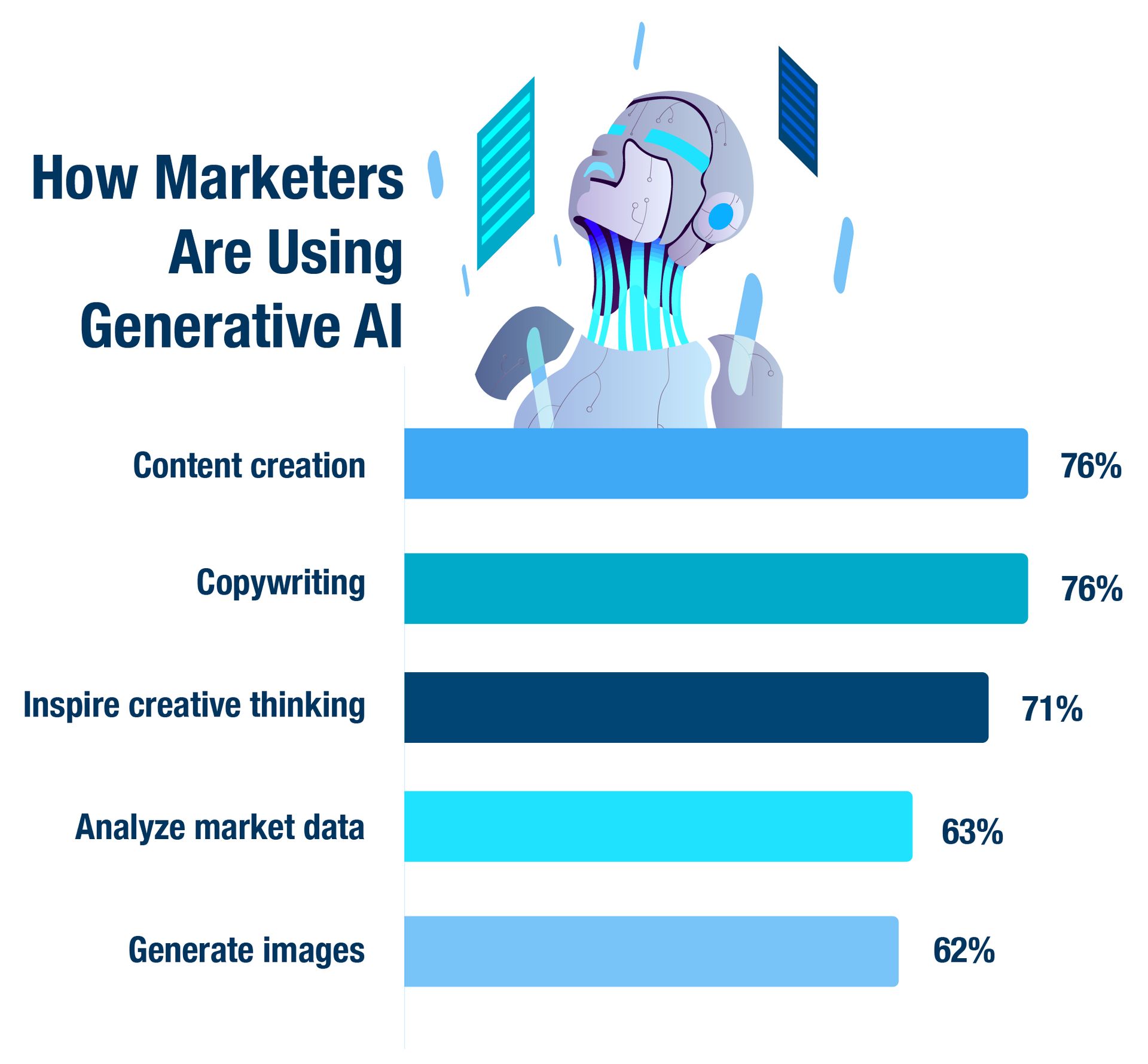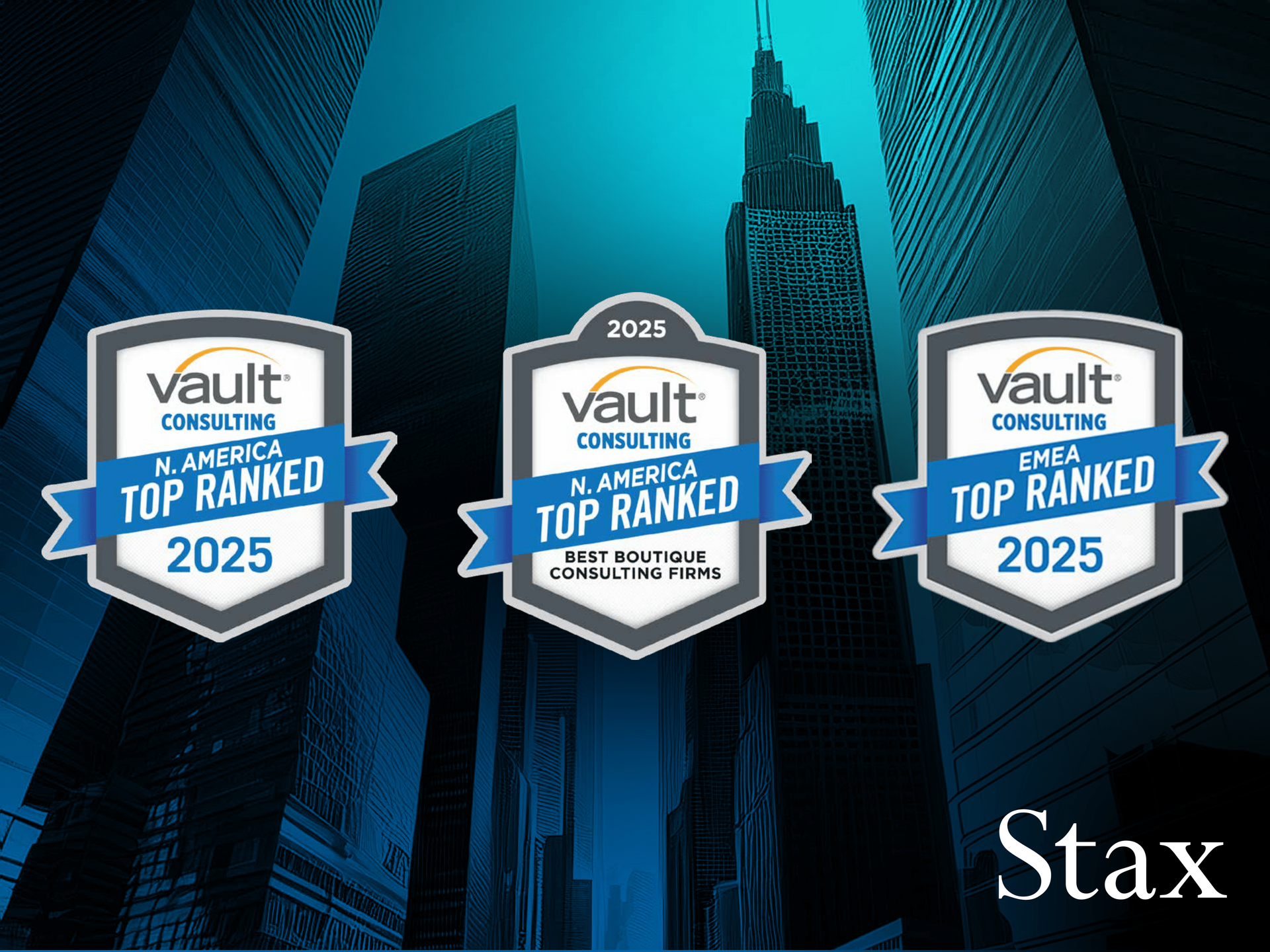Unleashing the Power of Generative AI in Marketing
Unleashing the Power of Generative AI in Marketing
In a recent article, we discussed the impact and implication of Generative AI (GenAI), focusing on the key takeaways for private equity and portfolio companies.
The advent of GenAI marks a new era for businesses, particularly in the realm of marketing. Companies embracing AI are witnessing remarkable success in attracting, engaging, and retaining customers. As we delve into the impact of GenAI on marketing, the market size is projected to soar from $1.9B in 2022 to an estimated $22.1B by 2032, showcasing a CAGR of 28.6%. As generative AI capabilities continue advancing, adoption is growing as companies recognize the need for customer-driven marketing, more effective go-to-market strategies, and differentiating themselves vs. the scale and intensity of competition.
The GenAI Advantage: Fueling Customer-Centric Marketing
The growing adoption of customer-centric strategies ensures that the marketing function has benefited immensely. Models like ChatGPT and DALL-E have given marketers powerful new tools to super charge how they engage customers by creating more personalized content analyzing/predicting user behaviors and preferences, facilitating faster responses, and aiding in the scaling of operations.
1. Personalization for Customer-Centricity: By analyzing customer data, GenAI helps tailor marketing messages, empowering marketers to create personalized content, analyze user behavior, and deliver faster responses. This focus on customer-centric strategies is revolutionizing organizational experiences.
2. Data-driven Decision Making: Leveraging GenAI's analytical capabilities, marketers gain valuable insights into consumer behavior and market trends. GenAI can spot trends and patterns that humans might overlook, helping professionals make more informed decisions about marketing strategies. This data-driven approach enables companies to optimize campaigns, make informed decisions, and stay ahead of the competition. For example, Co-Pilot by Microsoft allows marketers to ask complex questions across their marketing and sales data sets, enabling a holistic understanding of past, present, and future performance metrics.
3. Speed and Scalability:
Gen AI expedites marketing operations through automated content creation, real-time interactions, and swift data analysis. Many of these are manual or repetitive tasks which can be done by AI much more efficiently. HubSpot's study indicates that 90% of marketers foresee AI and automation reducing the time spent on manual tasks. Additionally, the scalability of marketing efforts is seamlessly achieved without expanding team sizes or increasing workload.

Strategic Impact Across the Customer Lifecycle
By incorporating GenAI into core marketing operations (sales forecasting, predictive data analysis, advertising optimization, and dynamic pricing), companies can enhance their decision-making, improve budget efficiency, scale marketing efforts, tap into new sources of value, and allocate more human time and effort towards strategic initiatives.
One such strategic, long-term impact is in GenAI’s ability to help markets in attracting, converting, engaging, and retaining customers across the lifecycle.
Progressive Marketing and AI
Progressive brands are already realizing the immense potential of deploying generative AI across marketing functions. According to a recent research study from Statista, 73% of marketers in the United States are already utilizing generative AI tools. Marketers are actively building teams to identify use cases, run algorithms optimizing operations, and enable hyper-personalization powered by generative AI.
These AI pioneers are seeing significant uplifts, with AI investment driving 3%–15% revenue gains and 10%–20% higher sales ROI. Within two years, 90% of firms expect to utilize generative AI solutions. Early adopters who can strategically implement generative AI for marketing will gain sustainable competitive advantages. Companies that have not yet incorporated AI risk losing ground to AI-powered rivals reaping transformative benefits across marketing and sales.
Conclusion
GenAI is not just a technological advancement; it's a strategic imperative for marketers. To unlock its transformative benefits, businesses need a forward-thinking partner to navigate the complexities, maximize value, and shield against potential pitfalls. As GenAI becomes the norm, those who strategically integrate it into their marketing operations will undoubtedly secure a lasting competitive advantage in the dynamic landscape of marketing and sales.
Stax has deep expertise within the generative AI industry, providing invaluable insights to both investors and businesses alike. Project-related experience includes comprehensive market analyses, identifying promising investment opportunities, and delivering data-driven insights. The firm serves a diverse range of investor interests, with a particular emphasis on upstream assets, including input suppliers and manufacturers. Stax has assisted clients exploring various subsegments within the generative AI sector. With a profound understanding of the complete generative AI ecosystem, Stax stands as the leading strategy consulting firm for comprehensive market outlooks and stability trends.
Learn more about Stax and our services
or
click here to contact us.
Sources
Malott, Marc and Wall, Jeremy. “Early Implications of Generative AI for Private Equity Investors,” Stax, Jun. 2023.
Deveau, Richelle, Sonia Joseph Griffin, and Steve Rais. “AI-powered marketing and sales reach new heights with generative AI,” McKinsey & Company, May 2023.
Brenner, Michael. “What Is Generative AI and How Can Marketers Use It Now?,” Marketing Insider Group, Aug. 2023.
HubSpot. “AI Trends for Marketers,” Hubspot, 2023.
IBM. “Value increases when technology meets design. Value explodes when generative AI meets experience,” IBM, Aug. 2023.
Read More
All Rights Reserved | Stax LLC | Powered by Flypaper | Privacy Policy






